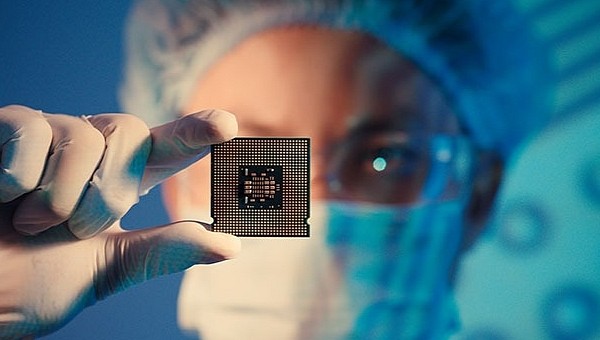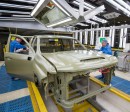Tech giant Samsung is already a big name in the chip manufacturing business, but the company wants to grow even bigger with a very ambitious plan. The South Korean firm wants to begin the development of smart chips that can be used not only on household electronics but also on electric and self-driving vehicles.
The chip shortage has wreaked havoc in the automotive industry, and after two years of struggle, the semiconductor inventory continues to be incredibly constrained.
Just earlier this week, Ford officials acknowledged that the chip shortage would continue through 2023, with General Motors admitting earlier this year that this is indeed the scenario they are preparing for.
The global investments in chip production capacity should start paying off in 2024 at the earliest, so industry analysts do expect the global supply, at least in the automotive market, to remain constrained next year.
In the meantime, Samsung has a very ambitious plan to prepare for the future of the semiconductor business.
The Korean media is reporting that Samsung wants to develop home appliance chips that would also be compatible with electric and self-driving vehicles. The company isn’t only trying to kill two birds with one stone but also wants to be ahead of the industry by preparing for a concept it believes could become the new norm in the automotive market in about one decade.
Merging cars and home appliances is something that’s been happening for years, especially as carmakers designed concept cars that doubled as small homes on wheels. As vehicles are getting self-driving capabilities, turning the cabin into a kitchen or living room is something that becomes more feasible, and Samsung believes this could happen sooner rather than later.
As a result, Samsung wants to be the leader of the self-driving push in terms of chips, something that would put the company in a favorable position once this new revolutionary trend gains pace.
The production of this new-generation chips should begin by the end of the year, but of course, Samsung has so far remained completely tight-lipped on its ambitious strategy.
Just earlier this week, Ford officials acknowledged that the chip shortage would continue through 2023, with General Motors admitting earlier this year that this is indeed the scenario they are preparing for.
The global investments in chip production capacity should start paying off in 2024 at the earliest, so industry analysts do expect the global supply, at least in the automotive market, to remain constrained next year.
In the meantime, Samsung has a very ambitious plan to prepare for the future of the semiconductor business.
The Korean media is reporting that Samsung wants to develop home appliance chips that would also be compatible with electric and self-driving vehicles. The company isn’t only trying to kill two birds with one stone but also wants to be ahead of the industry by preparing for a concept it believes could become the new norm in the automotive market in about one decade.
Merging cars and home appliances is something that’s been happening for years, especially as carmakers designed concept cars that doubled as small homes on wheels. As vehicles are getting self-driving capabilities, turning the cabin into a kitchen or living room is something that becomes more feasible, and Samsung believes this could happen sooner rather than later.
As a result, Samsung wants to be the leader of the self-driving push in terms of chips, something that would put the company in a favorable position once this new revolutionary trend gains pace.
The production of this new-generation chips should begin by the end of the year, but of course, Samsung has so far remained completely tight-lipped on its ambitious strategy.






